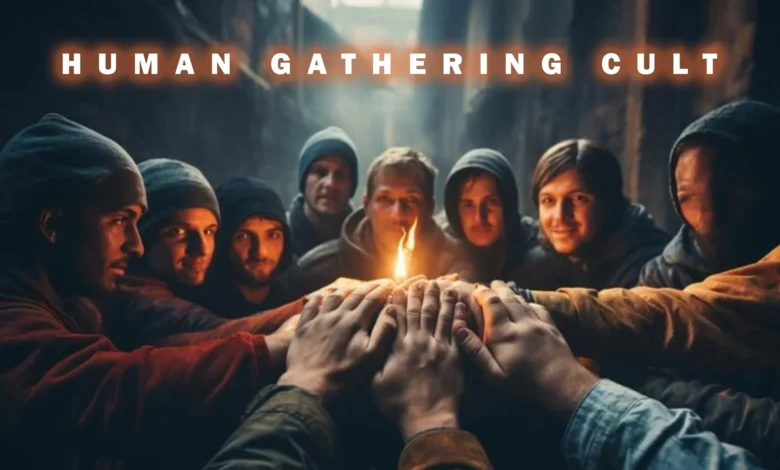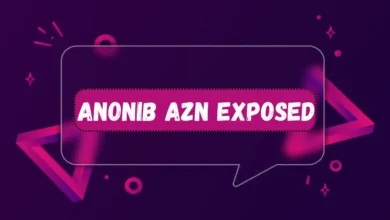The Truth Behind the Human Gathering Cult: Hype, Hope, or Hidden Agenda?

What Is the Human Gathering Cult? A Modern Mystery Unfolded
The term “Human Gathering Cult” has floated around the internet and social media for years now, sparking everything from curiosity to conspiracy. Some describe Human Gathering Cult as a secretive elite circle, others as a spiritual community promising personal transformation. But what exactly is it?
At its core, Human Gathering Cult presents itself as a private invitation-only event or movement. The founders claim it’s not a cult, but rather a group of forward-thinking leaders, entrepreneurs, healers, and change-makers. They promise deep connections, transformational experiences, and access to a like-minded tribe. But critics and skeptics call it a well-marketed pyramid scheme wrapped in vague spirituality and exclusivity.
The problem starts with the lack of transparency. There’s no clear mission statement, no open-door policy, and barely any public information about who is behind it. This secrecy has led many to brand it as a “cult,” even if the organizers insist it’s not. In the digital age, mystery isn’t always charming—it often raises red flags.
So, is it a genuine community for personal growth? Or a self-help masquerade with cultish overtones? Let’s dig deeper.
Cult or Community? Understanding the Fine Line

It’s important to understand what defines a cult before assigning the label too loosely. The word “cult” often brings to mind scenes from horror movies or documentaries about mind control. But in reality, a cult is usually defined by a few key traits:
- Charismatic Leadership – There’s usually one or more figures placed at the center of the movement.
- Isolation from Outside Influence – Members are encouraged (or pressured) to cut ties with outsiders or “non-believers”.
- Absolute Beliefs – The group claims to have the only truth or “real” solution to life’s problems.
- Financial Exploitation – Often hidden in the form of “donations,” coaching fees, or retreats.
Now, let’s examine these points in relation to the Human Gathering Cult.
Firstly,Human Gathering Cult while there’s no single obvious cult leader, the founders are strategically hidden from public view, making it difficult to gauge their credibility. Secondly, the event itself is heavily gated—no public tickets, only private invites, and even then, the cost can run into thousands of dollars for a single weekend.
The ideology of the group, as described by participants, leans toward a new-age blend of spirituality, business coaching, and elite networking. AndHuman Gathering Cult while that doesn’t automatically make it a cult, the exclusivity and emphasis on “we know something the rest don’t” definitely fits the pattern.
Members are often encouraged to cut ties with those who “don’t understand” the gathering’s purpose. That type of emotional insulation can be risky.
What Actually Happens at the Human Gathering Events?
This isHuman Gathering Cult where things get both interesting and murky. Public reviews and testimonials are rare, and the ones that do exist range from deeply moving to deeply disturbed. Some attendees claim the event changed their lives. Others say they felt manipulated or scammed.
The event typically spans a weekend, hosted in an undisclosed location (usually in nature), and includes:
- Guided meditation and spiritual exercises
- Group sharing circles
- Intimate performances or speeches by anonymous “thought leaders”
- Deep networking sessions
- Psychological or emotional “breakthrough” workshops
The language used in promotional materials tends to be heavy on emotional buzzwords—“unlock your potential,” “awaken your soul,” “find your tribe,” and so on. There’s a noticeable lack of concrete details, schedules, or speaker credentials. That’s a tactic commonly used in cult recruitment—to create a feeling rather than deliver information.
People who attend often report feeling “seen” or “heard” for the first time, which is powerful. But emotional vulnerability can also be weaponized. Critics argue that some attendees are encouraged to invest more—either money or time—into the movement once emotionally involved. And that’s where ethical lines can blur.
Psychological Triggers: Why Some People Get Hooked
Let’s be honest—most of us are searching for meaning, connection, or healing in some way.Human Gathering Cult That’s exactly what groups like the Human Gathering capitalize on. They use specific psychological triggers to make their offering irresistible:
- Exclusivity – People want what they can’t have. A private invite feels special.
- Belonging – In a disconnected world, the idea of a tribe is deeply appealing.
- Transformation – Promises of emotional breakthroughs sell like hotcakes.
- Mystery – What’s behind the curtain? Humans are naturally curious.
When these triggers are combined, people become deeply engaged. For some, this leads to genuine growth. For others, it may lead to manipulation or financial loss.Human Gathering Cult That’s why it’s important to analyze your own motivations before joining such events.
If someone feels lost, broken, or isolated, they’re far more likely to be pulled in by the idea of “a secret community that gets you.” It’s not weakness—it’s human nature. But awareness is key.
Red Flags and Warning Signs to Watch For
So how can you tell if something like the Human Gathering is actually dangerous or just a misunderstood group? Here are some red flags to watch out for:
- Lack of Transparency – You can’t find clear info about leadership, costs, or agenda.
- Pressure to Join Quickly – You’re told this is your “only chance” or that you “must act now.”
- Love Bombing – You’re showered with praise and attention to build loyalty fast.
- High Costs with Vague Returns – You’re asked to invest a lot without clear benefits.
- Discouraging Outside Voices – You’re told critics “just don’t get it.”
If more than two or three of these are present, it’s time to ask serious questions. You don’t have to outright accuse a group of being a cult—but you should be cautious and informed.
Is There Any Good in It? The Gray Area of Group Healing
It would be unfair to say that everything about the Human Gathering Cult is evil or deceptive. Some people report life-changing breakthroughs, meaningful friendships, and career growth after attending. Not every secretive group is a cult—and not every cult is entirely bad (at least on the surface).
Humans are tribal creatures, and we thrive in community. When done right, events like these can help people heal, grow, and connect. The problem arises when emotional vulnerability is used for personal gain, especially financial or ideological control.
So, if you’re curious about attending something like this, do your homework. Ask for references. Talk to past attendees. Set clear personal boundaries. And trust your gut—if it feels off, it probably is.
Final Thoughts: Stay Curious, Not Careless
The Human Gathering Cult (or community, depending on your view) sits in a gray area. It combines elements of personal development, exclusivity, and spiritual hype in a way that’s both alluring and potentially dangerous. While not definitively a cult in the classic sense, it shows several cult-like tendencies that should not be ignored.
At the end of the day, the best defense is education and self-awareness. In a world full of quick fixes and spiritual shortcuts, the real transformation still comes from within—not from secret gatherings or five-figure retreats.
Stay curious. Ask questions. And always check the source before you drink the Kool-Aid
YOU MAY ALSO READ
Human Gathering Cult



